From ‘Ministry of Love’ to an actual ministry
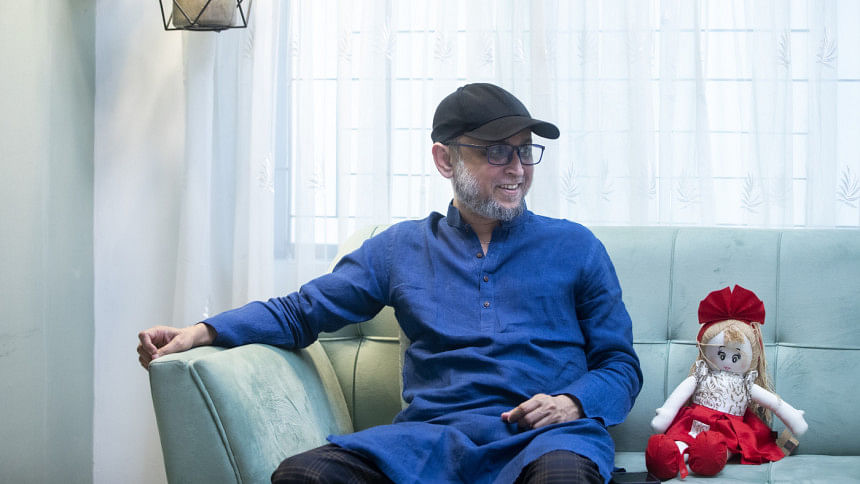
Mostofa Sarwar Farooki's leap from the cinematic world to the corridors of power hasn't been the smooth transition many may have imagined. Appointed as the Cultural Adviser to the interim government, the acclaimed filmmaker has found himself navigating a terrain riddled with scrutiny, expectations, and ideological fault lines.
In this exclusive interview, the Cultural Adviser opens up about the journey so far— the personal deliberations that preceded his appointment, the professional risks he knowingly took, and the vision he holds for Bangladesh's cultural future. Yet, behind the sharp public figure, we find a man who still misses the intimacy of the film set—where the only politics involved were those of plot and character.
How do you feel after taking charge of the Ministry of Cultural Affairs, especially being a part of the interim government?
Any new responsibility brings with it a few feel-good moments, but challenges are waiting just around the corner. I never truly aspired to hold public office. When the offer came, my first thought wasn't policy or power—but family. I knew this would affect Tisha and our family dynamics. Even though we usually keep work discussions to a minimum, I felt I had to speak to her. Her immediate response was 'no', and mine echoed hers.
What actually convinced you then?
Although I picked up the phone to inform the Chief Adviser Professor Dr Mohammad Yunus, to let him know of my decision to decline, that conversation took an unexpected turn. I told to myself 'I probably have a responsibility to work for rebuilding as I was also part of a huge population who wanted to see the end of Hasina's fascist rule.' I felt July has given us a responsibility and I should respond to that although I knew it's going to put me in a very uncomfortable position.
I was aware that accepting this role would alienate me from some people. But after the oath, I realised it wasn't just one group—I'd triggered discontent in multiple directions.
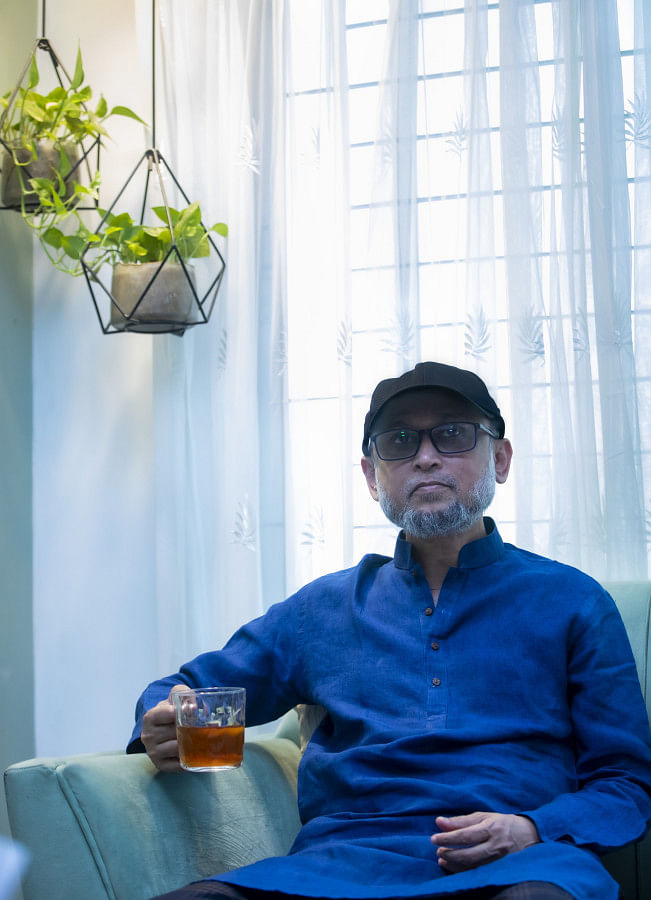
Still, you remained resolute…
Because I knew we have a responsibility to give a new cultural direction which will include different ideas, ethnic groups, and religions. We knew we have a huge job in hand and it's not going to happen easily.
How challenging has your journey been so far?
During 17 years of past bureaucracy, there have been many weak appointments and a great deal of nepotism. I'm having to work within a horribly designed system. Within this bureaucracy, we have both capable employees and incompetent ones.
Some are genuinely committed to change and improvement, while others actively slow down our progress. That in itself is a huge challenge.
In addition, there are undeniable challenges that come from differing social opinions post uprising. July uprising saw many differing groups come together with one goal. When that goal was achieved, quite understandably, the ideological differences of these groups have started to come to the surface. Everyone who participated in the uprising, in any capacity, believes the country should run ONLY the way they want it to. So, we needed to be extremely aware of the sensitivity. At the same time, we needed to be absolutely resolute about what we want to achieve. It's a tough act of keeping things balanced.
You're only the second person from showbiz in Bangladesh's history to lead the Ministry of Cultural Affairs to date. Do you think it's genuinely beneficial for someone from the cultural field to head this ministry?
It is undoubtedly important for someone from the cultural sphere to be in charge of this ministry, as such a person is more likely to be aware of what is happening in that sector. They understand the existing challenges and are better positioned to address them.
However, I also believe that this doesn't always guarantee success. Much depends on the individual in charge — their depth of understanding, both at the macro and micro levels, and their vision about the nation's cultural identity and goals. The person also needs to have a clear idea about creative economy and the growth of cultural industry.
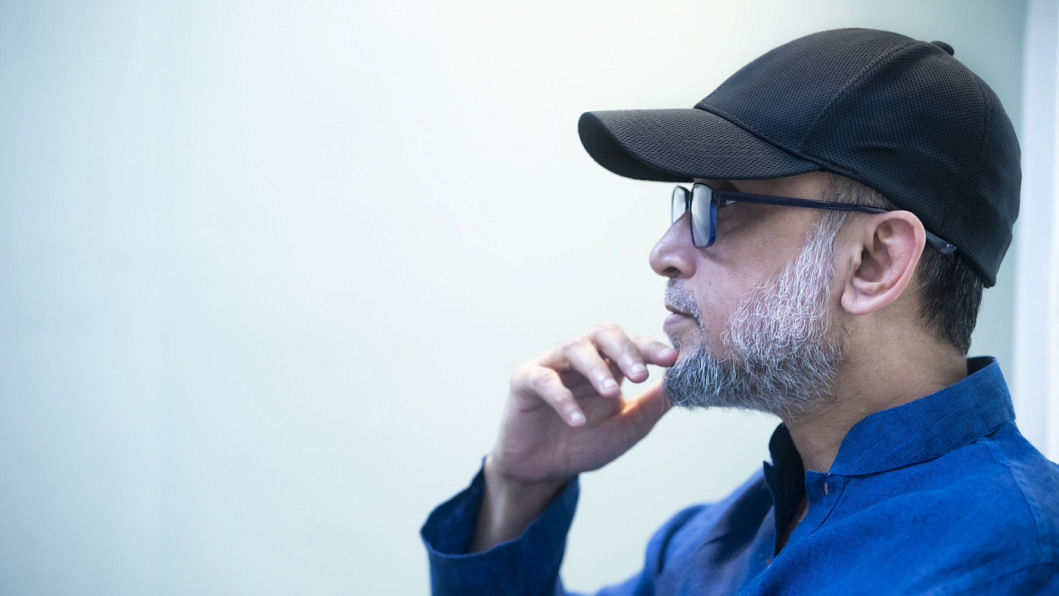
You previously brought up about a 'broader aspect' of the cultural sector. Could you elaborate on that?
The common idea about the Ministry of Culture is- oh, it's about entertainment industry. But in reality, its responsibilities stretch far broader. Of course, cultural industry is our prime focus although our ministerial allocation of business makes it difficult to take proper care of our cultural industry which I will discuss later.
On the macro level, the ministry has a vital role to play in shaping ideas of inclusion within society. It carries an enormous responsibility. When this ministry is misdirected, it can give rise to political tensions. The depth of such cultural mismanagement has contributed to 16 years of oppression, culminating in the uprising we saw in July.
That's why I believe the July movement was primarily a cultural phenomenon, a manifestation of cultural rage.
With the national budget approaching, the cultural community is calling for at least one percent of the total allocation to go to the cultural sector. In your view, is this a realistic and justified demand?
To me, the minimum allocation should be four percent. I also think the entire scope of the Ministry of Culture's work needs to be completely redefined. The country's entire cultural industry — film, television, OTT platforms, music, theatre, photography, and new media — all of it should fall under one unified industry. The entire gamut of art education should also come under the ministry like they have in Korea and many countries who are doing brilliant with their creative economy. Only then, we will be able to formulate a proper action plan for the creative industry and people related to the industry.
If you were granted a portion of the national budget, how would you prioritise its use?
Music is Bangladesh's biggest cultural asset. If we have to brand Bangladesh globally, it has to be with music. Think of the enormous variety we have in our music. Even if we get one percent, our primary focus should be mapping the music landscape of the entire country. Next, we should develop a program in order to facilitate a huge music archive which will not only project Bangladesh globally as a land of music, but will also earn revenue for the artistes. We are already developing two programmes around music- one deals with music schools and the other with the rich musical variety of Bangladesh. This shall include people from not just Bangalees, but all ethnic groups.
The second priority will be to complete meaningful reforms of the Shilpakala Academy and museums – which are in terrible conditions by the way. Much like our museums, our archaeological department is also not properly functioning. We have failed to take inspiration from the world, and never tried to know how archaeological sites are being presented to in a modern way. It's not enough to just have a beautiful site.
At this time, we are just highlighting the needs and creating a blueprint for reforms. However, we have at least targeted one archaeological site and trying to do something during our tenure. We are trying to turn Panam Nagar into a living city of arts, craft, and gastronomy -- and turn it into a must-visit place for the people of the world if we can plan things properly. We are already discussing this internally.
In addition, we are formulating a new cultural policy upon which our next action plans should be based on. An expert committee is already evaluating policies from different countries and working on making a draft for us. If we had longer tenure, we would have targeted bringing the entire cultural industry into one umbrella and form a five-year action plan with a set of achievable goals.
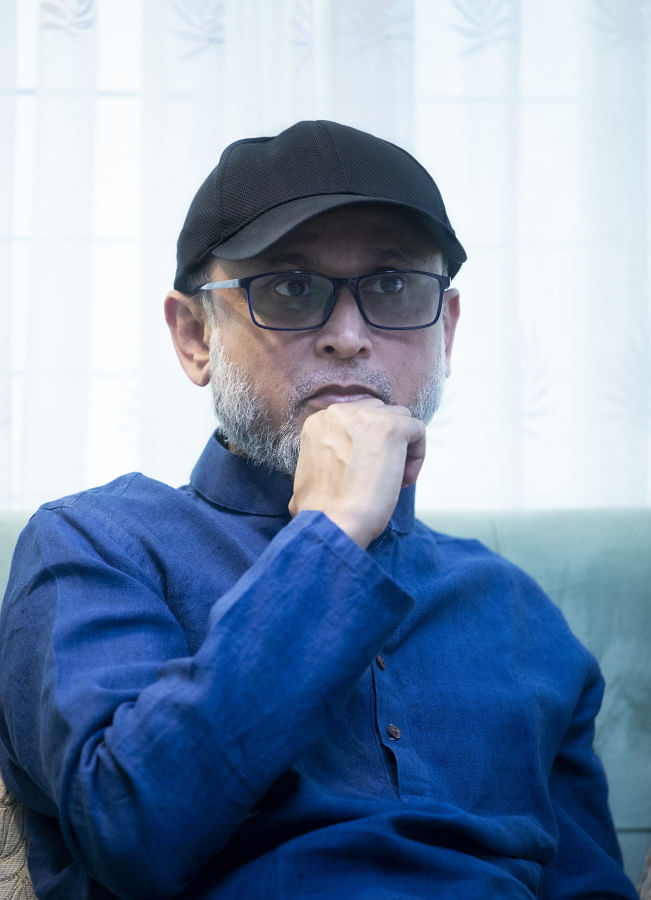
The film industry is still under the Ministry of Information and Broadcasting…
It makes no sense, and I have said this so many times. However, it is a long procedure, and without an elected body of government with a longer tenure, it is not possible to bring that change in ministerial allocation of business.
Could you explain how all cultural wings under one umbrella would be beneficial?
If that happens, we'll be able to map the current state of our creative sector — who is working where, what kind of support the government is providing, how our private sector is performing in terms of economic growth. Quality work will emerge not just from direct government initiatives, but also through motivation and indirect support. I believe that's essential.
Also, as I mentioned earlier, all educational institutions related to art should also come under this ministry. This would help us track how many students are emerging from the sector, where they're coming from, whether they're receiving proper education, and what curriculum changes are needed to prepare them for the job market. Right now, we lack that structure.
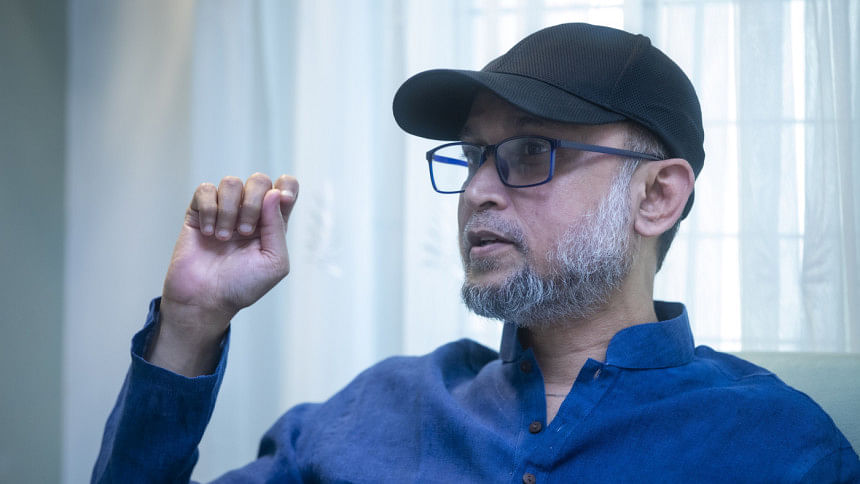
Wouldn't that be a time-consuming process?
Of course! That's why I mentioned about remaining practical in selecting targets. What I've just outlined is a vision that would require five to ten years to implement.
Since that's beyond our current term, we're working on shaping these ideas into a blueprint, which we will publish publicly before we leave, so that those who come through democratic elections can choose to take it forward.
Frankly speaking, I've prepared the plan considering a December timeline, so that I wouldn't take on any impractical projects. We've tried to identify what can realistically be done within this limited time.
What, in your opinion, have you been able to achieve so far during your time in this role?
One cannot expect huge reforms in such a short time, but I think signs of change are already visible. You can clearly see a paradigm shift in the state's cultural policy. From small things like a show at UNESCO or OSACA Expo to this year's Noboborsho celebrations, you can feel the change. For the first time in the history of Bangladesh, all ethnic groups have been included in the new year rally at Dhaka. Rock bands from different ethnic groups were included in the line-up of biggest ever Chaitra Shongkranti concert. They were not included as tokens, but were rather treated respectfully and given prime-time slots. An additional day of holiday was declared, which was a valid demand of many different ethnic groups in Bangladesh. This country is for everyone.
Another longstanding issue we've faced is the false binary between religion and culture—especially the tendency to treat Islamic culture as something separate from mainstream cultural identity. This division, we believe, has contributed to a deep political crisis. That's why, from the outset, we've been focusing on two foundational ideas—'cultural inclusion' and 'cultural healing'. This process is already underway, and we're already witnessing its impact gradually.
Take Chand Raat, for example—the night before Eid. This year, a celebratory programme was held at the Bangladesh Shilpakala Academy, followed by an Eid rally. Some critics were quick to accuse us of pandering to Islamists. But to put things in perspective, this year's Buddha Purnima was celebrated not just in Dhaka but in three major districts. For Eid, the Ministry of Culture released a TV commercial on the Chief Adviser's official page, and similarly, a Buddha Purnima TVC—directed by a young filmmaker from their community—was released in the same way. These are clear markers of inclusion. You'll see similar efforts for Durga Puja and Christmas as well.
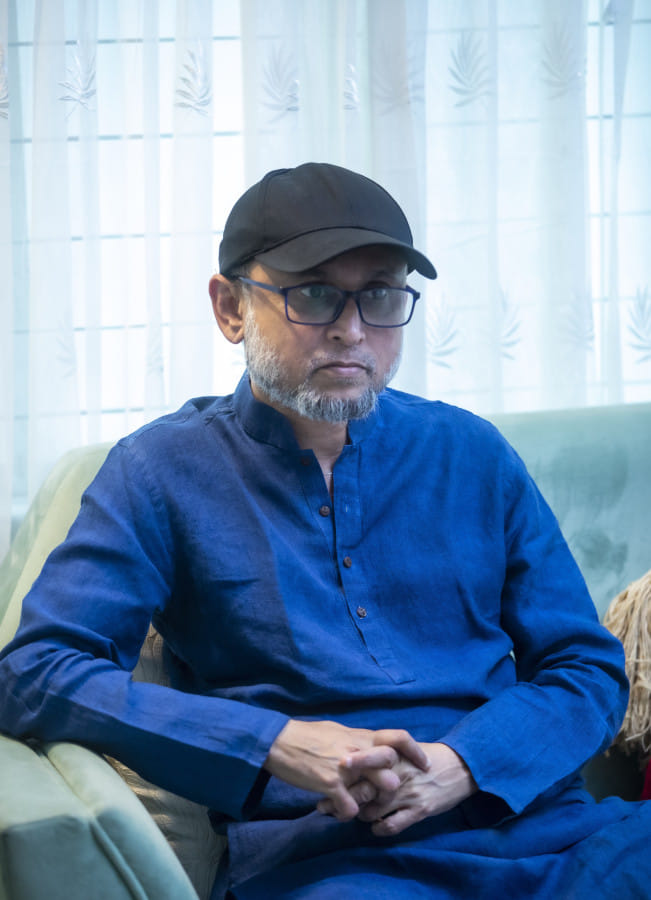
The tenure of Jamil Ahmed at Bangladesh Shilpakala Academy (BSA) has come to an end controversially, yet no new Director General has been appointed. What are the Ministry's plans for BSA?
Despite the absence of a regular DG, BSA has remained remarkably active during this new year's celebration. At the same time, it needs to be mentioned BSA needs a major reform and restructuring. We have been working on forming a reform committee as soon as possible, just so it can become a modern art space for all disciplines and can cater to today's needs.
While the reform committee works on the much-needed engine overhaul, a new DG will definitely be appointed. We are looking forward to someone who can lead the organisation with maturity.
When are we getting a new DG?
We've shortlisted a few candidates. However, whoever takes on the role must be open-minded — someone who is curious about all art forms and mediums, aware of global trends, and understands how different forms of art are flourishing around the world. We're looking for someone who isn't confined to just one world or perspective. At the same time, the person needs to have administrative and leadership qualities. Without this, it's going to make it difficult. Let's see. First let's form the reform committee as soon as possible.
We're witnessing a wave of 'wholesale' charges being brought against artistes, including serious accusations like murder. As someone regarded as a guardian of the cultural community, can you guarantee professional safety for artists who hold differing political views or beliefs?
And I absolutely do not support the practice of filing wholesale or blanket charges. It's deeply troubling.
If there are legitimate, specific allegations against someone or a group, then legal action can and should be taken against the individuals directly involved.
But accusing someone of a crime they had no proven connection to—say, linking them to an unrelated murder—is unacceptable. Allegations must be specific and grounded in evidence. No one—be it the President, Prime Minister, or minister or artiste—is above the law. If someone commits a crime, they must face legal consequences. But using the law to intimidate or suppress dissent is equally wrong.
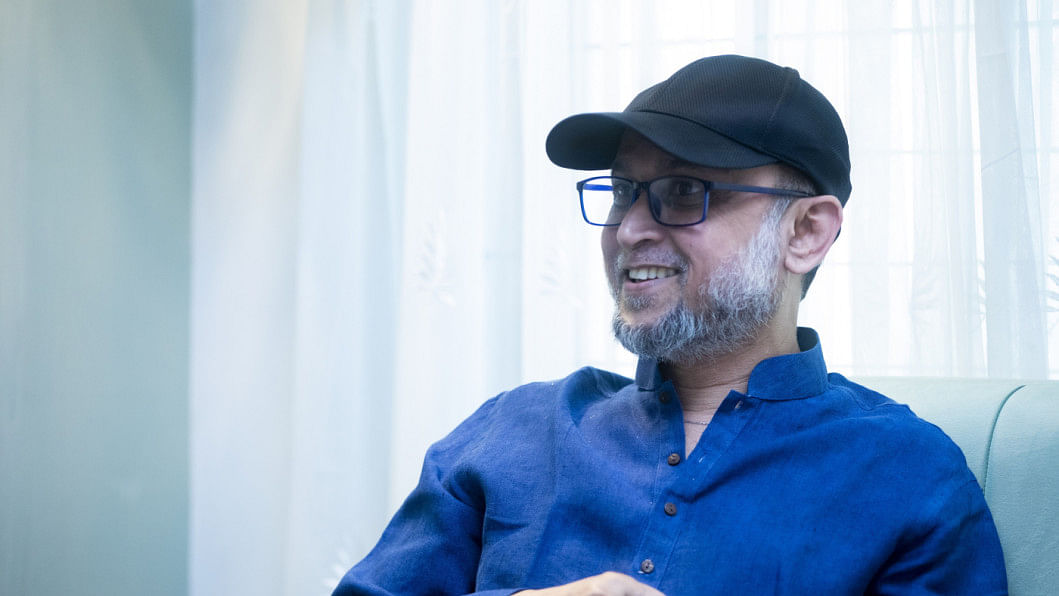
Concerts were being postponed, theatre performances cancelled, and actresses harassed at opening events—often attributed to the actions of so-called "special groups". Why hasn't there been a strong and decisive response to stop these incidents?
After the mass uprising and initially after the interim took charge, the police and administration were effectively non-functional. In that vacuum, some incidents happened as we all know.
What really matters is how the state responds to those incidents. For example, every Baul concert that had been shut down subsequently took place.
We must avoid making sweeping generalisations. This year, despite everything, the cultural celebrations during Chaitra Shongkranti and Pahela Baishakh were held on an unprecedented scale. People across the country have said they've never seen such mass participation before.
What does that tell us? Bangladesh is a multicultural, multi-religious melting pot. It has always been this way, and it will remain so.
Three journalists were reportedly sacked for asking you questions. Do you have anything to say about this?
First of all, I personally am fully respectful of the personal freedom of expression. Our government is clear about its stance on journalistic freedom.
I humbly submit that no one lost their jobs for questioning me. For instance, there was a very controversial question about my wife, Nusrat Imrose Tisha, and her role in the Mujib biopic. Did the journalist who asked that question face any consequences? Absolutely not.
As for the three journalists now being talked about—they asked me their questions, and I responded directly at the time. For me, that issue ended right there. What happened afterwards— the online backlash and public reaction— was driven by those who participated in the uprising and by the families of the victims of July. As far as I remember, the participants of the movements and the families of the shaheeds were shocked because the question of whether Hasina was a proven killer was raised. July is still fresh in people's memories. It hurt them deeply.
But we don't know why the three media outlets removed them. Neither I or the government support such sackings—it's uncomfortable and regrettable. I have called upon newspapers immediately after to investigate if there was any influence, direct or indirect, from the government.
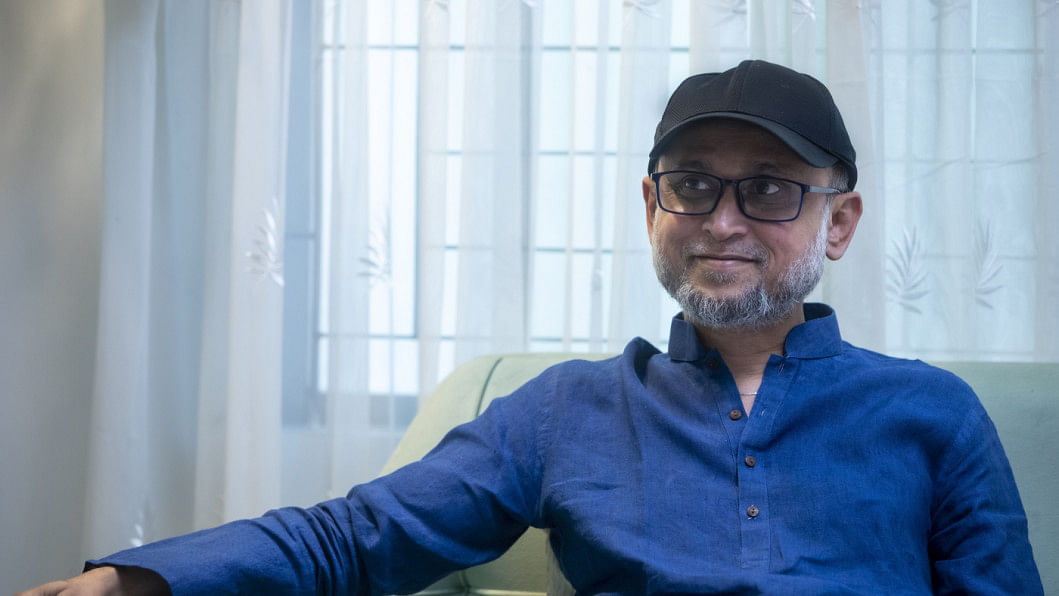
On a lighter note, do you miss direction?
I miss it tremendously. I always knew that taking on this responsibility would put my filmmaking career at serious risk. Many would turn against me—but I have always followed my conscience, doing only what I believed was right. The biggest sacrifice since stepping into this role has been my last directorial project, "840 aka Democracy PVT LTD".
I truly consider it one of my strongest political satires. But when it was released, it didn't find its audience. Right away, there was a right-wing campaign accusing me of sympathizing with fascists. Simultaneously, the Awami League launched their own campaign against me.
Caught in this political storm, the film suffered greatly—it became a target of attacks and was largely neglected. But I expected this from the start. Still, I have no regrets because I'm confident "840" will be recognised for its value, even if it takes five years.
I especially miss directing—being on set. For me, filmmaking is inherently political—at least the kind of films I make. So, everything I say or do often sparks controversy. Being outspoken on social media made me a frequent target, and that has likely impacted the mindset of my audience as well. Some people may decide not to watch my film just because I didn't subscribe to their ideology, or to be precise, I stood against that.
Sometimes I wonder—would it have been better if I'd stayed silent on social media and just kept making films quietly? However next moment, I tell to myself 'If it's right for any artist to keep quiet in the face of a mass-killing just because it might cost him some loyal audiences?
Before becoming Minister of Culture, you led another ministry—Chorki's 'Ministry of Love'. We haven't heard any updates from that ministry.
Since I am not able to see anything about it, Tisha is looking after that.
What is the current stage of the Monsoon Revolution project?
Eight workshops are complete, but progress on the films has slowed down a bit. Due to bureaucratic procedures, there's been a delay in fund transfers. It will take some time—things will start coming in gradually, one by one.
Many are also asking — now that there are no obstacles and you're in power, why aren't you releasing 'Saturday Afternoon'?
The film is already available on OTT. The people who would watch the film has seen it in their own way. There's no freshness left in it anymore, so why would someone feel there is a potential market in theatres now? It already had theatrical releases in America and Canada.
Do you intend to run in the upcoming election?
Absolutely not — I'm a filmmaker. After the uprising, when the country called, I responded. However, I'll return to filmmaking and continue making films. However, if the next government feels the need for advice on the blueprint we leave behind, I'll certainly offer my support. After all, I'm a stakeholder in this country. If I'm called upon, of course I'll share my views. To sum it up -- I'm not someone looking to enter politics.

 For all latest news, follow The Daily Star's Google News channel.
For all latest news, follow The Daily Star's Google News channel. 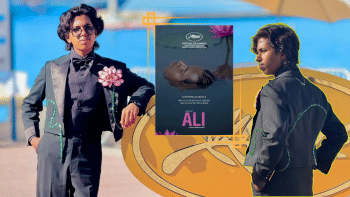
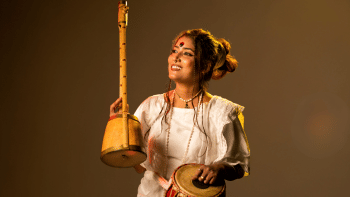




Comments